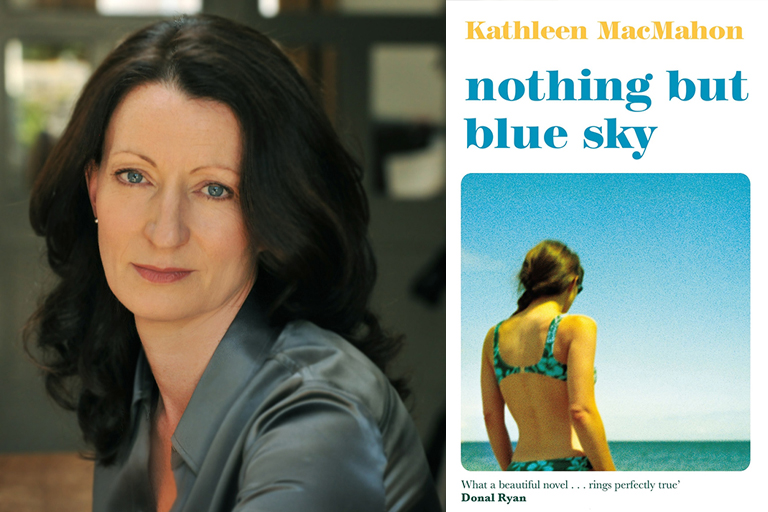Author and former Women’s Prize judge, Dolly Alderton, joins us for our regular feature, Women Writers Revisited to muse on her love and connection with the adored American journalist, filmmaker and writer Nora Ephron.
Nora Ephron is my only imaginary friend of adulthood. I was in my early twenties when I turned the final page of I Feel Bad About My Neck for the first time and began a now-permanent habit of having conversations with her in my mind.
Coincidentally, while writing about her various infatuations with cookbooks, Nora herself describes how she would follow Michael Field’s and Julia Child’s recipes and, as she cooked, have ‘imaginary conversations’ with them both. Whenever I finish a column, I read it aloud to her and I hear her tell me when my wording is too florid or my jokes aren’t punchy enough. When I write scripts, I imagine her letting me know when my dialogue isn’t truthful. While I was writing my memoir, I was always asking her whether I was hitting the right balance of soft and hard, which she always did perfectly – somewhere between cynicism and enthusiasm, with the right amount of earnestness and curtness, just enough reality and just enough romanticism.
Everybody trusts Nora. She was a skilful journalist, an authoritative and witty essayist, a genre-defining storyteller of the silver screen (her films such as When Harry Met Sally and Sleepless in Seattle rank amongst the greatest romantic comedies of all time) and the best friend every woman longs for – shrewd, hilarious and utterly unimpeachable, equal parts Dorothy Parker, Coco Chanel and Mrs Beeton. I Feel Bad About My Neck takes her most distinctive qualities as both a writer and a woman and neatly packages them into a pearls-of-wisdom jewellery box that should sit on every woman’s bookshelf as a life guide.
Her voice is reassuringly, wonderfully forthright – never more so than in this book. If she tells you to make lima beans with pears, you make lima beans with pears. If she tells you you can never own too many black polo necks, you empty M&S of their cashmere. If she tells you to install a discreet waste- paper basket into your desk, you take a saw to your Ikea LINNMON. I ask her opinion on nearly everything, and the words on the pages of this book are never far away from me as I go about day-to- day life. I think of her when I’m having a pedicure (‘when it’s over, your feet really do look adorable’), when I’m clothes shopping (‘don’t buy anything that is 100 percent wool’), when I’m anxious on a flight (‘the plane is not going to crash’) and when I’m in a restaurant (‘overtip’). In a world where there is an overwhelming volume of choice, Nora Ephron’s exacting, precise, didactic, tried-and-tested, sophisticated-woman-wearing-all-black wisdom is a comfort and a relief. It’s why I give this book as a present more than any other. I buy it for people so often that I’ve been known to give girlfriends two copies, one birthday after the other.
And while I’ve given it to male friends too, her bold truth-telling on the trivial and political complexities of womanhood makes it an essential manual for women. Writing in a time before social media’s moral mafia existed (although I have no doubt Nora would have been completely unbothered by it), she is refreshingly candid about modern femininity’s requirements. She details both her bewilderment at much of it, and her acquiescence to some of its demands – a confusing quandary that we women face every day and feel subsequent guilt about. Ephron invites us in on where she toes and trashes the line, while carefully contemplating the lunacy of it all.
Handbags, for example, are something she won’t be persuaded by, due to their expense and the fact that they immobilise you. ‘That’s one of many reasons why you don’t see the guys-with-purses trend catching on. If one of your hands is stuck carrying your purse, it means it’s not free for all sorts of exciting things you could be using it for, like shoving your way through crowds, throwing your arms around loved ones, climbing the greasy pole to success, and waving madly for taxis.’ Bikini waxes, she argues, are only needed when you’re wearing a bikini, and if that time comes she suggests breathing exercises she learnt in antenatal classes: ‘I recommend them highly, although not for childbirth, for which they are virtually useless.’ She goes to the hairdresser for a blow-dry twice a week because it’s ‘cheaper by far than psychoanalysis, and much more uplifting’. And she recommends upper-lip thread- ing as beauty maintenance, so you can ‘walk out the door knowing that if you go to the market and bump into a guy who once rejected you, you won’t have to hide behind a stack of canned food.’
These self-effacing, self-aware observations are the lingering base note of her instantly recognisable comedy. She doesn’t need to tell us how chic she is, how smart she is, how well-loved she is; it’s effortlessly evident. Instead, she valiantly reveals the least appealing truths about herself with alacrity – whether it’s confessing she and her friends wear mandarin collars to cover their ageing ‘turkey necks’ and end up looking like ‘a white ladies’ version of the Joy Luck Club’, or when she informs us: ‘I’m sorry to report that I have a mustache.’ In ‘The Story of My Life in 3,500 Words or Less’, she explains: ‘When you slip on a banana peel, people laugh at you; but when you tell people you slipped on a banana peel, it’s your laugh. So you become the hero rather than the victim of the joke.’ Nora Ephron’s comedy proposes a way of life. An undefeatable, good-humoured, gutsy verve for experience on your own terms.
Copyright Dolly Alderton, taken from the introduction to I Feel Bad About My Neck by Nora Ephron, published by Transworld.







